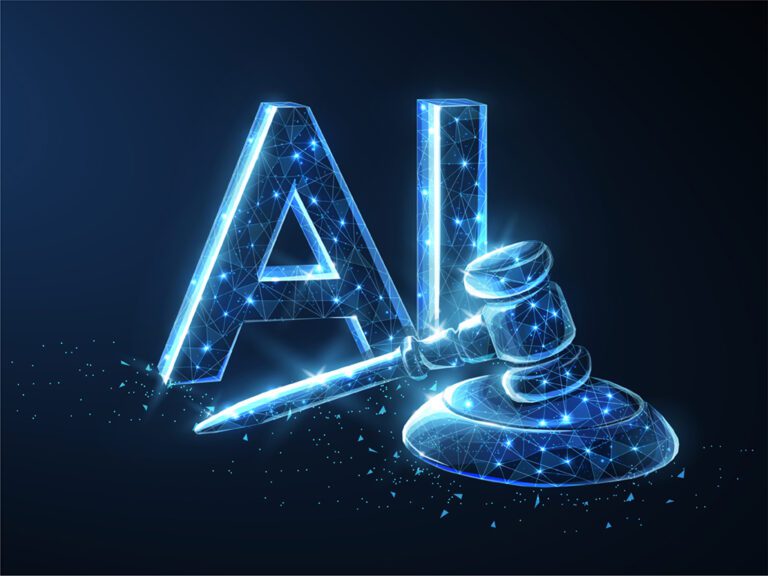Driving Change: How AI is Re-Imagining Legal Ops and the Practice of Law

By Colin Levy
February 23, 2024

Colin Levy is the author of "The Legal Tech Ecosystem" and the editor of the "Handbook of Legal Tech," serving as a dedicated guide in the legal technology sector. A corporate lawyer by training, he has a passion for innovation and technology. Levy currently serves as the Director of Legal and an Evangelist for Malbek, a provider of enterprise CLM solutions. He also holds roles as both a legal tech startup advisor and investor, remaining deeply connected to the industry's advancements.
The legal profession has long been beholden to tradition, where precedent, the “one way” of doing things, and resistance to change reigned supreme. However, the rise of legal operations alongside burgeoning advancements in artificial intelligence (AI) are fueling change, on a scale not seen before, within the legal industry. AI is no longer a futuristic vision, but a present reality reshaping every stage of legal work, from proactive risk mitigation to post-dispute resolution with legal operations professionals helping to illuminate the way.
The most immediate impact of AI lies in its ability to automate and augment routine legal tasks, like contract review, which was once an exercise in tedious clause-by-clause analysis. Law firms and in-house legal teams are embracing AI tools like Kira Systems and Zuva, two contract review tools. In the case of Kira Systems, legal professionals are accelerating the contract review process by over 50%.
E-discovery, the process of sifting through mountains of digital data in litigation, is no longer the sole domain of paralegals. Platforms like LexMachina can wade through gigabytes of information, surfacing only the most relevant evidence with uncanny accuracy. This automation unfetters lawyers from administrative burdens, allowing them to focus on the strategic aspects of their work, such as crafting persuasive arguments, developing effective litigation strategies, and fostering deeper client relationships.
The Lawyer’s Metamorphosis: From Advice Givers to Strategists
As AI tackles routine tasks, lawyers are migrating towards more strategic roles. Deloitte reports that legal departments are focused on digital transformation and engaging in efforts to both a) retrain their staff to leverage legal technology and b) to understand and realize the value of using legal technology. This transition has created rising demand for those well versed in bridging the gap between the technology and legal realms, a gap increasingly filled in by legal operations. In addition, lawyers now must acquire new skill sets, including effectively using AI-augmented tools while doing so ethically and responsibly. The ability to critically evaluate AI’s outputs and collaborate with tech teams to ensure quality control are crucial skills in the AI-powered legal landscape.
Beyond mere automation, AI is poised to transform the very core of legal decision-making. Predictive analytics, fueled by vast troves of legal data, is offering unprecedented insights into the potential outcomes of litigation, the persuasiveness of specific arguments, and even the behavior of judges. While not infallible, AI can provide lawyers with a powerful tool for assessing risk, calibrating expectations, and making informed strategic decisions. Imagine a lawyer meticulously preparing for an upcoming trial, not just relying on intuition and experience, but armed with AI-generated insights into the judge’s past rulings, the success rates of similar arguments, and the emotional triggers that might sway the jury. This data-driven approach to lawyering marks a significant departure from the traditional reliance on precedent and intuition. Its potential to improve legal outcomes is undeniable.
However, the integration of AI into the legal landscape is not without its challenges. Concerns regarding bias and discrimination loom large, as AI algorithms trained on historical data can perpetuate existing societal inequities within the legal system. Algorithmic bias can manifest in various ways, from discriminatory hiring practices to unfair sentencing algorithms. Addressing these issues requires a proactive approach, emphasizing transparency and accountability in AI development and deployment within the legal system. Robust governance frameworks must be established to ensure that AI tools are used ethically and responsibly, and lawyers must be equipped with the necessary skills to evaluate the outputs of these algorithms critically.
This advancement, however, necessitates critical assessment of AI for inherent biases that could skew results, and adherence to ethical standards in its application to ensure fairness and confidentiality. Unfair prejudice in algorithmic systems can cause them to behave in discriminatory ways, promoting unsafe or unethical outcomes. Strategies to combat AI bias include rigorous evaluation of algorithms, implementing comprehensive bias mitigation plans, strengthening human-AI interactions, cultivating collaborative development practices, prioritizing data integrity, enforcing fairness constraints on AI models, utilizing explainability techniques, incorporating human judgment in AI decision-making, and encouraging impact assessments and audits.
Additionally, it’s essential to understand that AI bias often stems from broader societal and systemic influences, not just technical aspects. Addressing these diverse facets is crucial for developing fair and unbiased AI systems that are equitable for all users. For more in-depth information, you can refer to these articles from PixelPlex, Atrium, NIST, and McKinsey & Company that discuss these issues and solutions in detail.
The Changing Lawyer Skillset
As AI handles more of the routine legal work, the role of lawyers is evolving to be more strategic — requiring the development of new competencies beyond traditional legal skills.
Lawyers will need to cultivate technological literacy to effectively utilize AI tools within the legal landscape. This includes gaining process insights into how AI applications analyze documents, predict case outcomes, inform litigation strategies, and assist with settlement negotiations. Evaluating these systems critically for potential biases while ensuring adherence to ethical standards will also be crucial.
Additionally, lawyers will need communication skills to collaborate with technical teams on AI implementation, quality control, and risk management. As legal processes become more automated and augmented by predictive analytics, lawyers must translate AI outputs into actionable legal strategies, guidance, and arguments.
The future lawyer skillset will still rely fundamentally on traditional competencies like complex legal research, argument creation, court advocacy, negotiations, and analyzing jurisprudence. However, these will be complemented by AI implementation skills, data literacy, technology collaboration abilities, and ethical AI evaluation. Ultimately, the symbiotic integration of legal expertise and AI proficiency will define legal professionals equipped to navigate the evolving industry landscape in 2024 and beyond.
Where are we going from here?
The future of lawyering in 2024 is not about the wholesale replacement of lawyers by AI. Instead, it is about the emergence of a symbiotic relationship, where AI augments human capabilities, empowers more informed decision-making, and frees lawyers to focus on the higher-order aspects of legal practice. By embracing AI thoughtfully and responsibly, the legal profession, including lawyers and those within legal operations, can harness its potential to improve efficiency, enhance outcomes, and ultimately, ensure a more just and equitable legal system for all. The gavel may still echo in courtrooms, but its rhythm is now accompanied by the hum of AI, heralding a new era of collaboration and innovation in the practice of law.
Daily Updates
Sign up for our free daily newsletter for the latest news and business legal developments.




